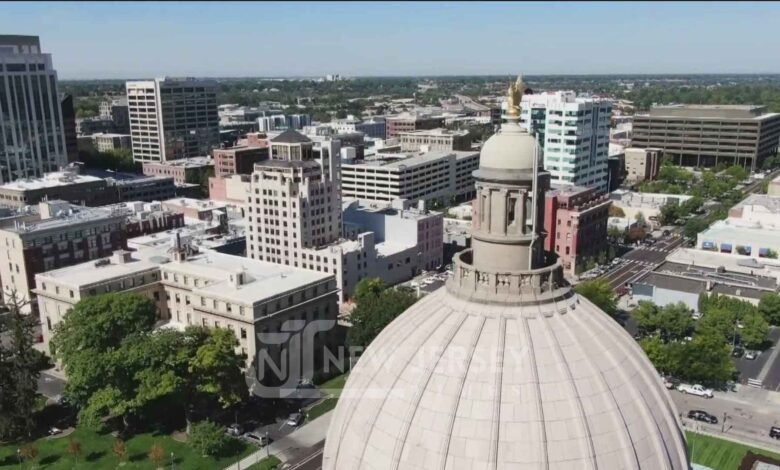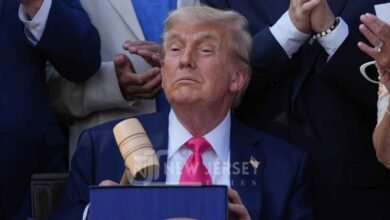
Washington, July 4 EST: One day after the Supreme Court’s conservative majority reopened the gate for third-country deportations, a federal judge in Washington, D.C. slammed it shut — at least temporarily — on humanitarian grounds.
Judge Randolph Moss, a veteran of the federal bench with deep roots in constitutional law, paused the deportation of eight migrants slated for removal to South Sudan, a nation engulfed in civil instability and flagged by the U.S. State Department as too dangerous for nonessential American personnel.
It’s a legal clash that’s fast becoming a constitutional confrontation: who ultimately decides the limits of executive power when it collides with basic due process?
The Supreme Court Giveth, the Lower Courts Push Back
The July 3 Supreme Court order — unsigned, fast-tracked, and delivered with the confidence that has marked its recent emergency rulings — handed a victory to the Trump administration, which has aggressively revived removal policies abandoned during the Biden years.
The Court cleared the way for the U.S. to deport individuals to countries where they have no family, no history, and no legal status.
It wasn’t even close. Justices Sotomayor and Ketanji Brown Jackson dissented, warning that the decision all but authorizes the U.S. to deliver human beings into conflict zones without so much as a hearing.
The administration took the ruling as carte blanche. By the next morning, the Department of Homeland Security had initiated plans to send the men — none of whom are South Sudanese — from a U.S. military base in Djibouti directly into one of the world’s most unstable nations.
Judge Moss said: not so fast.
The Constitution Still Has Teeth
Moss, an appointee of President Obama and a former Assistant Attorney General under Clinton, framed the issue not as one of broad immigration policy, but basic legal fairness.
The government, he ruled, must allow these men to challenge their deportation — particularly if they face credible threats of harm. The Fifth Amendment’s guarantee of due process, he suggested, doesn’t disappear simply because the executive branch declares a removal urgent or politically convenient.
It’s not a final ruling. It’s a pause. But in this moment, that pause carries weight.
What’s emerging is a constitutional showdown: one side arguing that immigration enforcement must be nimble and absolute in a globalized security landscape; the other asserting that even foreign nationals — detained in far-flung U.S. installations — retain certain rights when their lives are on the line.
The Ghost of Korematsu
There’s a long, uncomfortable lineage to what’s unfolding. From Japanese internment under FDR to Cold War-era deportations, American courts have repeatedly struggled to define the boundaries of emergency authority and the value of individual liberty during politically charged times.
In Korematsu v. United States, the Supreme Court infamously deferred to executive wartime power — a decision later condemned but never fully exorcised. Now, deporting men to a country the U.S. itself deems unsafe without giving them a chance to speak feels eerily familiar.
Judge Brian Murphy’s May ruling, which required DHS to give notice and offer “fear screenings” before deporting individuals to dangerous third countries, had sought to codify basic protections. The Supreme Court tossed that stay aside.
Moss’s ruling picks it back up — for now.
A Legal Case. A Human Standoff.
It’s not just a courtroom drama. For the eight men at the heart of this case, it’s a question of survival. Detained in Djibouti, they’ve had minimal access to legal counsel. The administration argues that “diplomatic assurances” from South Sudan guarantee humane treatment. Human rights experts warn such assurances are, at best, unreliable and at worst, window dressing.
The DOJ, meanwhile, is playing hardball. In a recent filing, it accused Judge Murphy of “lawless defiance” and insisted that detaining the men abroad is harming diplomatic ties.
Translation: This is about more than just immigration. It’s about control. The executive branch wants its authority restored. The courts — some, at least — aren’t so sure.
What Happens Next
Judge Moss has scheduled a full hearing to determine whether constitutional protections apply in this case. If he affirms that they do, it could reshape the scope of third-country deportation power and set a precedent for future cases.
It would also signal that the judiciary isn’t willing to let immigration policy be dictated solely by political will — even under the broad banner of national security.
For now, eight men remain in limbo. A nation watches another front open in its long-running war over borders, belonging, and who gets to decide what justice means in America.
New Jersey Times Is Your Source: The Latest In Politics, Entertainment, Business, Breaking News, And Other News. Please Follow Us On Facebook, Instagram, And Twitter To Receive Instantaneous Updates. Also Do Checkout Our Telegram Channel @Njtdotcom For Latest Updates.

A political science PhD who jumped the academic ship to cover real-time governance, Olivia is the East Coast's sharpest watchdog. She dissects power plays in Trenton and D.C. without bias or apology.








